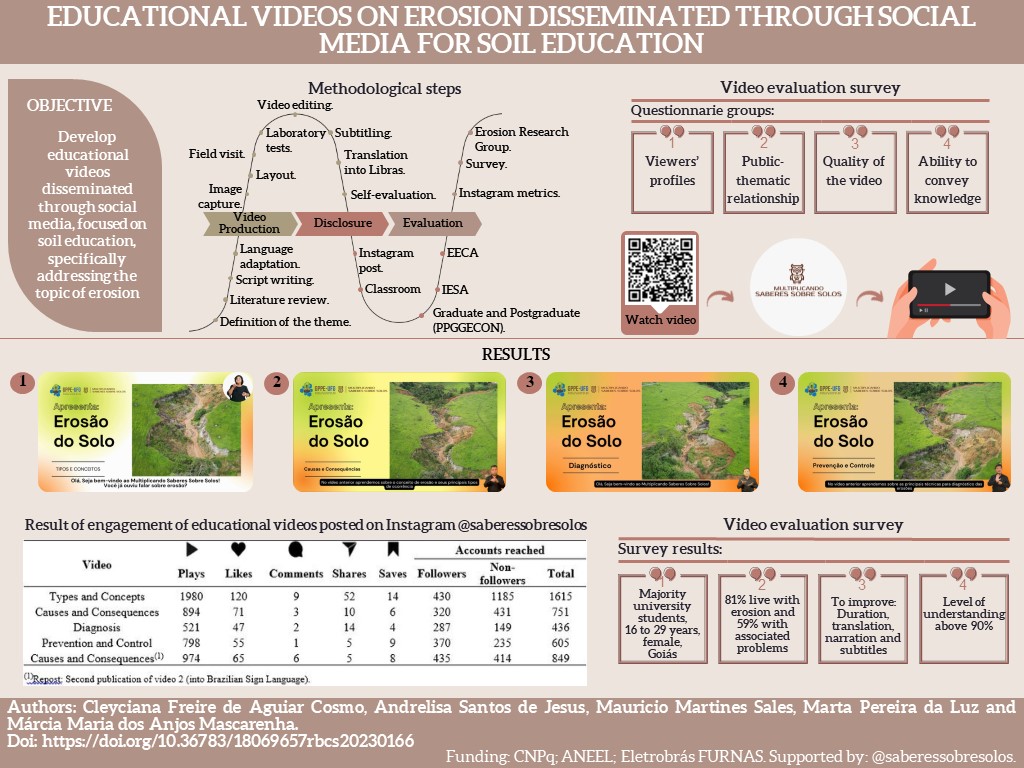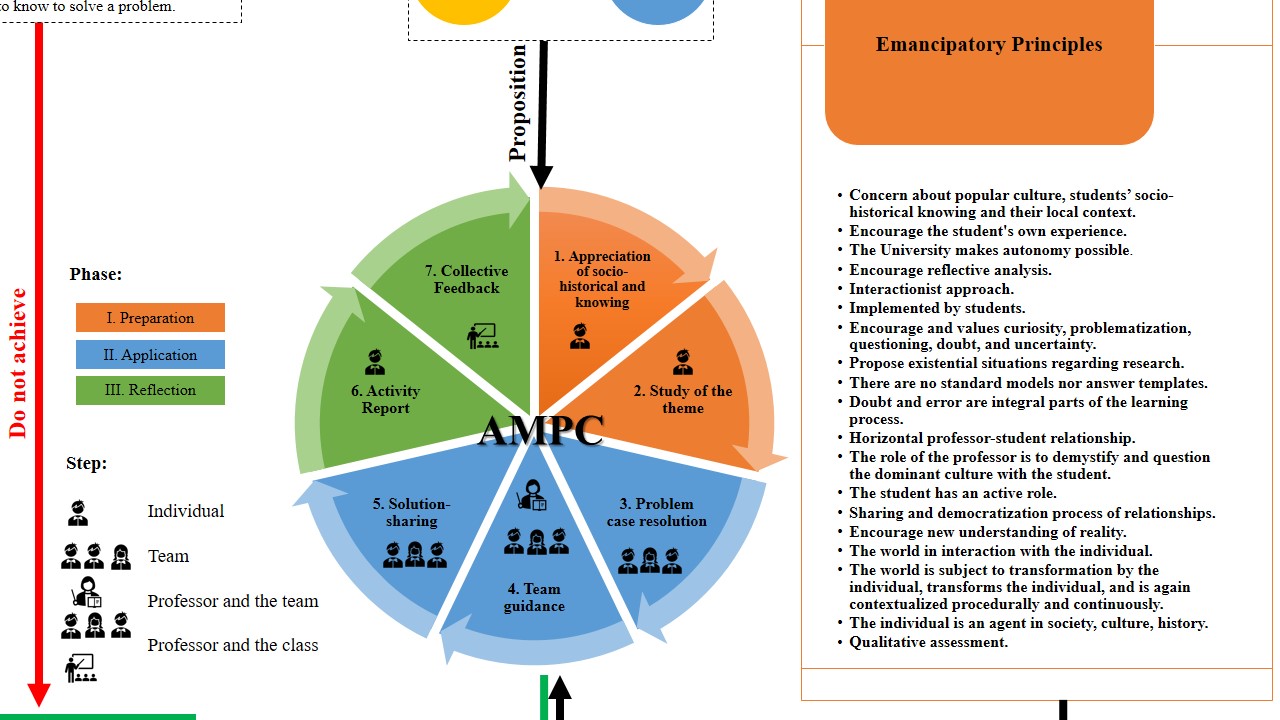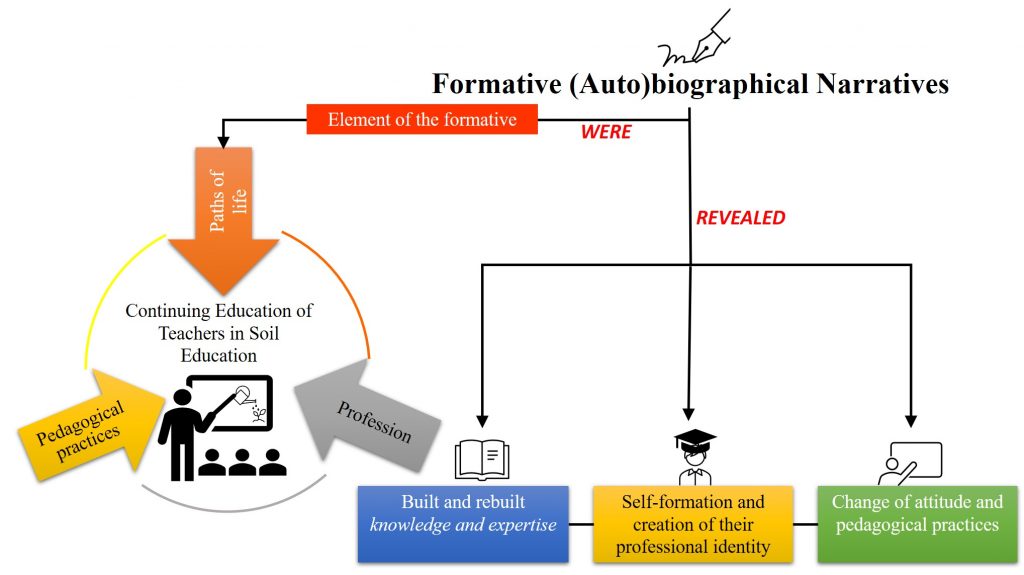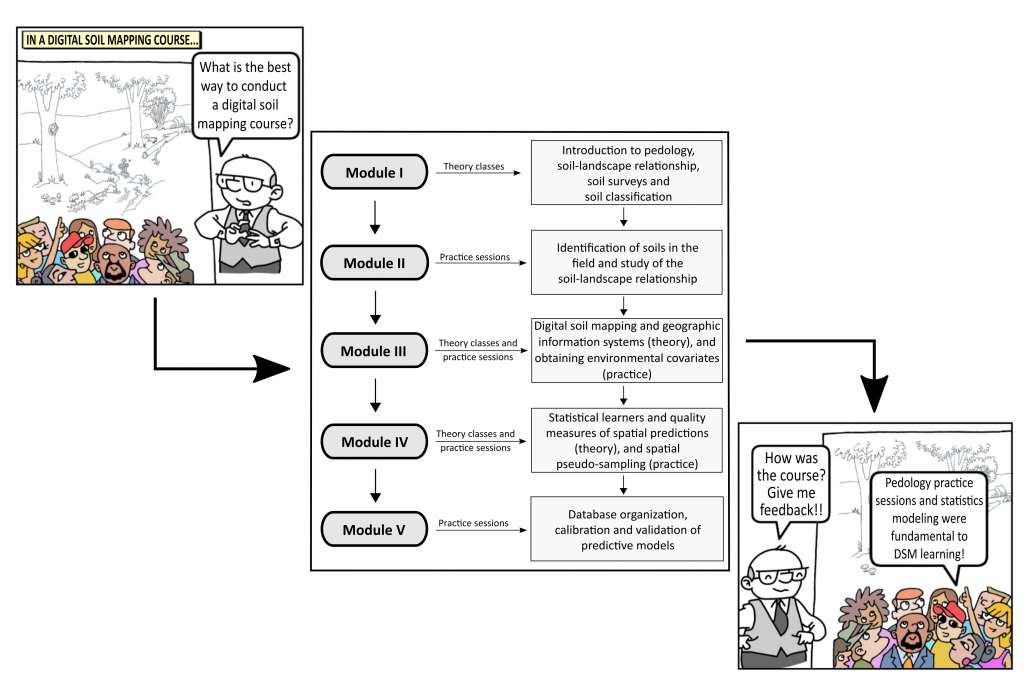Emotional connection empowers farmer-driven soil conservation
06/Nov/2025
ABSTRACT A unified theoretical framework that comprehensively explains soil conservation behavior remains elusive. This underscores the significance and novelty of research exploring the psychological factors influencing farmers’ decisions. The concept of “connection to soil” captures the emotional bond that farmers develop with the land. We hypothesized that connection to soil acts as a mediator, strengthening the relationship between farmers’ pro-environmental propensity (broad commitment to environmental protection) and their adoption of soil conservation practices. This study involved 150 farmers, equally distributed […]
Educational videos on erosion disseminated through social media for soil education
19/Jun/2024
ABSTRACT Soil education plays an important role in preventing soil degradation processes by raising awareness among the population about the importance of this non-renewable resource. Using new educational technologies in teaching, such as educational videos and social media, can speed up communication and information. This article aimed to develop educational videos on the topic of erosion, posted on social networks, as a way of popularizing science. Four videos of a maximum of 7 minutes were produced, which were shown in […]
Educational procedures guided by emancipatory principles for education on soils in higher education: A proposal
04/Sep/2023
ABSTRACT The traditional paradigm of education, although outdated, still supports Soil Educational procedures in several Brazilian universities. However, the strategic documents of these institutions (Institutional Development Plan-IDP, Institutional Political Project-IPP and Pedagogical Projects of Courses-PPC’s) support a critical vision of education, which converges with the emancipatory paradigm and with the purpose of Soil Education (SE), which is the formation and transformation of subjects for conscious actions in reality. To overcome this problem, we propose educational procedures guided by emancipatory principles […]
Alternative Methodology of Problem Cases – AMPC for soil education guided by emancipatory principles
28/Oct/2022
ABSTRACT Soil Education aims to give individuals a transforming formative process for conscious actions related to the soil in their life experiences in and with the world. As such, the educational methodologies addressing soil-related contents should be in dialogue with the purpose of this educational process. On the perspective of education for social transformation, it is recommended that professors of Higher Education avoid from pedagogical actions with traditional approaches, and start using other strategies and methodologies centered on students and […]
A teachers’ formative process in soil education takes place while integrated to their life stories
07/Apr/2021
ABSTRACT The teacher’s formative process is developed by a critical reflective response to the paths of life, the profession, and its practices. The teacher’s formative process analysis should consider the process’s objectives (theoretical, practical, and emancipatory), and the dimensions that make up the teacher (person, practices, and profession). As a result, this study aims to introduce the elements that outline the categories stemming from the relationship matrix between the objectives and the dimensions, and use them to analyze a formative […]
How is the learning process of digital soil mapping in a diverse group of land use planners?
03/Feb/2020
ABSTRACT The use of new technologies, the development of new software, and the advances in the machines ability to process data have brought a new perspective to soil science and especially to pedology, with the advent of digital soil mapping (DSM). To meet the demand for soil surveys in Brazil, it will be necessary to popularize the techniques used in DSM. To identify and map the soil to generate maps of land use capability, we proposed a theoretical and practical […]
Ethnopedology of a Quilombola Community in Minas Gerais: Soils, Landscape, and Land Evaluation
18/Jan/2017
ABSTRACT Quilombolas are Afro-brazilian rural peasants who descended from escaped slaves who tried to carve out territories of autonomy (called Quilombos) by collective organization and resistance. Despite many anthropological and ethnopedological studies, little research has been carried out to identify the agricultural practices and the knowledge of people who live in the Quilombos (Quilombolas). Peasant communities who live from land resources have wide empirical knowledge related to local soils and landscapes. In this respect, ethnopedology focuses on their relationship with […]
Experimental Method to Determine Some Physical Properties in Physics Classes
01/Sep/2015
ABSTRACT Particle density, gravimetric and volumetric water contents and porosity are important basic concepts to characterize porous systems such as soils. This paper presents a proposal of an experimental method to measure these physical properties, applicable in experimental physics classes, in porous media samples consisting of spheres with the same diameter (monodisperse medium) and with different diameters (polydisperse medium). Soil samples are not used given the difficulty of working with this porous medium in laboratories dedicated to teaching basic experimental […]





